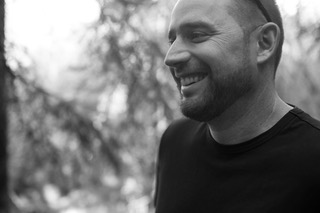Having The Talk
ADHD Diagnosis – Now What?
When a child receives an ADHD diagnosis they often take home a prescription for medication and maybe a hand-out titled “What is ADHD”? That’s it. Rarely do they get a clear, fact- based explanation of what it means to them. As a result, many children, teens and parents feel confused, stigmatized and ashamed of the diagnosis.
How To Explain It To Your Child
Be positive in your approach. You may have to modify this general explanation of ADHD based on your child’s age and cognitive ability. The part in your forehead is the ‘operating system’ of your brain. It’s developing a few years slower than the rest of your brain. Everyone’s brain has things that are easier or harder to learn. If you’re playing Minecraft on a 2016 computer, it may be “glitchy” because it’s an older operating system. ADHD is kind of the same thing. The operating system of your brain is playing catch-up and makes it harder for the rest of your brain to do certain things. I know you can tell time, but feeling time is different. When you’re doing something you really enjoy, it might feel like you’ve only done it for a few minutes when you’ve actually been at it for half an hour. On the other hand, having to do something like take out the garbage actually only takes five minutes. For you it could feel like it could take half an hour because it’s not interesting.
Use Your “Brain Coach”
This is a term used for self-directed talk which does not come naturally to ADHD children when compared to their typically developed peers. Your brain coach is the voice in your brain that helps you get through things that are boring or difficult; to figure out what to do next; to identify what is a little, medium or big problem; to think about someone else’s thoughts before you say or do things. Have you ever yelled at your parents and realised afterwards that it was actually a small problem and then you feel bad afterwards? Your brain coach is like a YouTube video where you can see five seconds into the future. ADHD can turn its volume down.
Downside Of “Sugarcoating”
Be direct and help them to advocate for themselves. Most children will come to realise that ADHD is not a ‘super power’ or a ‘gift’, given the challenges it presents. A super power is not something you need or take medication in some instances for in order to manage your daily activities. However, I do acknowledge the ways that hyperfocuing and abundant creativity can be helpful.
How They Can Tell Their Peers
Give children the language to explain their ADHD. If not, they can turn it into negative, self-defeating comments onto themselves. The idea is to take the focus away from your child and to focus on their behaviour within the context. For example “my brain makes it hard for me to picture what I’m supposed to be doing and to pay attention to things that I’m not interested in.”
How To Tell Family And Friends
I often hear ADHD is just an excuse for bad parenting. This is false. Simply explain that ADHD is a neurodevelopmental condition. It means that the frontal lobe or the ‘self-control’ part of the brain is developing about three years behind the rest of the brain. You can’t speed up the development of the frontal lobe by being stricter, or by punishing, or by telling a child to try harder. If your child had autism (which is also a Neurodevelopmental condition), would others be saying this?
Sources:
Saline, S. & Markhaam, L. (2018). What your ADHD Child Wishes You Knew.
Price, S.E. (2015). ADHD: How to Parent a Happy, Healthy Child With ADHD.
Roché Herbst
M.A.R. Psych
info@wehcs.com
My practice location is from my home office in Bragg Creek Mondays and Wednesdays 10am-5pm; Calgary office Tuesdays and Thursdays 9am-4pm. Call or text me on (403) 510-9984 or email: info@wehcs.com























